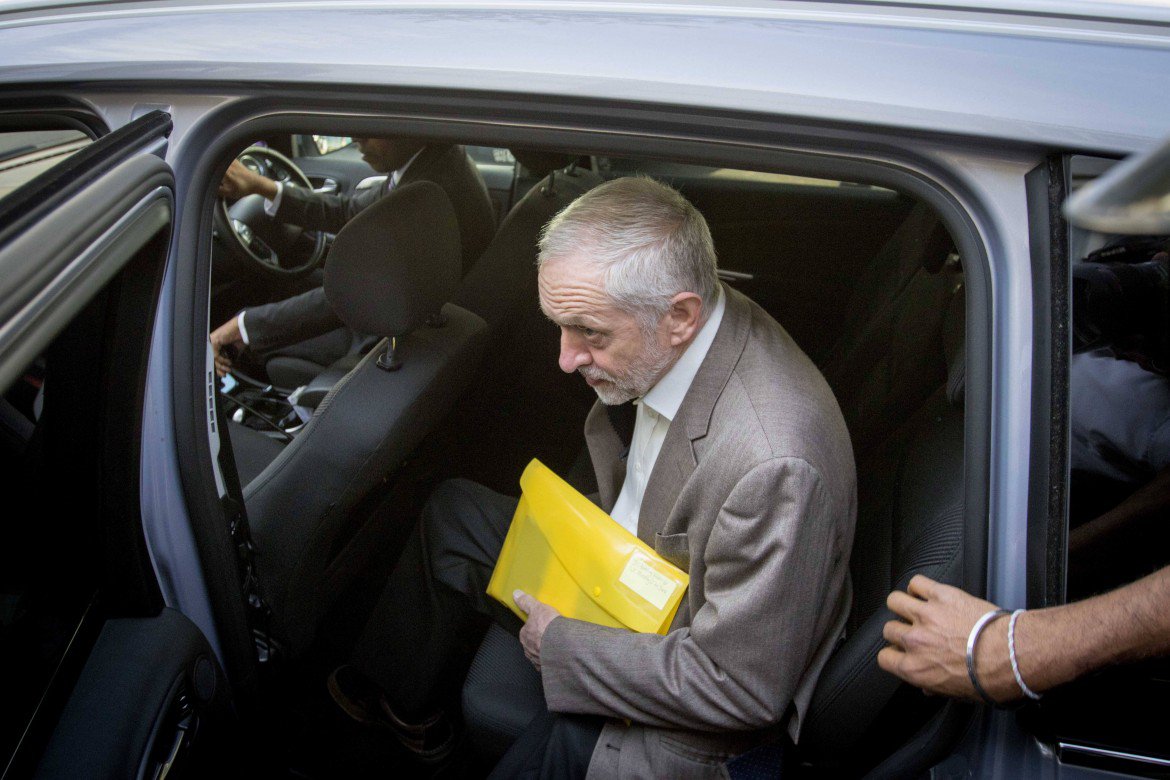Labour
With Corbyn under pressure, trade unions defend him
The brutal internal coup continues, and Brexit appears more and more an excuse.

With the two main parties without a leader in permanent, effective service — David Cameron threw himself on his sword, and Jeremy Corbyn pointing a gun at his party comrades’ foreheads — Great Britain is beginning a long and painful goodbye to bipolarism, to governability and to the joys of the plurality system. For Corbyn, Wednesday was a day of passion and unspeakable pressure.
But if, in the Tories, the divide is experienced at the level of professional and career attention-seeking behavior level (in the end, they are always in agreement, in their presuppositions), in Labour the divide is a deeply ideological one. And it’s become a civil war: disintegrating, cruel, merciless. For three days they’ve tried to exercise a violent pressure against Corbyn in an attempt to induce him to leave because of exasperation. They’re banking on his kindness and his presumed fragility. A technique reminding us of those interrogations aimed at breaking the victim’s resolve.
The internal putsch — which saw Corbyn brutally discharged by 172 members of parliament against 40 who remained beside him, after that already three quarters of his government had left him in a vote of mistrust by scrutiny — obviously a secret one — continues. He hasn’t given up. He knows he’s got on his side the base of the party which elected him with a majority never seen before. He knows he’s got the unions, who see in him a barrier against the attack carried out for some time against workers’ rights by both major parties, flown into a centrist mixture which makes their policies mostly indistinguishable.
Wednesday, the secretaries of the Unite, Unison, GMB and GWU unions met to discuss their message. Now they will have to call for new elections to elect the leader, although none of the conspirators has enough popularity to convince the base to prefer him or her to their hero. Tom Watson, Corbyn’s second, also a “modernizer,” has stated that he will not be the candidate.
Now we’re in stage two. After the flow of defections by several unknown deputies begin the statements by the old Blair-ist and post-Blair-ist leaders who, until now, were wise enough to be silent to avoid suspicion of being puppeteers. Margaret Beckett began Wednesday morning, weeping about the fact that, throughout her entire political life she was never unfaithful to a leader from her party.
That afternoon, she was echoed by other senior characters like Ed Miliband, former leader, and Harriet Harman, the party’s former president; they decided to remove any doubt and give a final push in the attempt to induce Corbyn to leave. Gordon Brown too has come out in the open, saying that Labor must decide whether it’s a protest party or a government one, a story already heard somewhere else.
The shock waves have reached even the Scottish party, in which the Scottish secretary was blanketed with requests to stand aside. Shocked because of the Brexit — naturally his fault, not the Tories’. Wednesday afternoon even economists like Thomas Piketty and Mariana Mazzucato, who were his consultants, abandoned Corbyn. In compensation, Corbyn has received a supportive call from Alexis Tsipras.
A few hours before, during the Prime Minister’s Questions, the leadership split in half, faced the unusual silence mixed with scorn and mercy, of which the hall assisted to its exchange with Cameron, which — surprise, surprise — concluded by asking him to “resign” in the interest of the country.
Twenty-five years later, Blair’s modernizing project is bearing its fruit. The trauma of the exit from the E.U., eased by the historic vote from, which, under his leadership, the party distanced completely, has brought down the bridge separating the middle class representatives from their own popular base. With the result of having made them socially strangers.
And Corbyn is not the cause of this non-involvement; he’s just a symptom of it. Tony Benn said that the Labor Party is like a bird: to fly, it needs the left wing and the right wing. It’s a metaphor that’s not valid anymore.
The rebel deputies have constituted a “Saving Labour” campaign for the possession of the party’s name. A split, no matter what the end of the leadership’s psychodrama will be, doesn’t seem impossible at all. “Momentum,” the committee constituted around Corbyn and John McDonnell, his comrade, the economic shadow-minister, has organized a great public protest for today.
Originally published at http://ilmanifesto.info/corbyn-sotto-pressione-ma-la-base-sindacale-lo-difende/ on 2016-06-30
